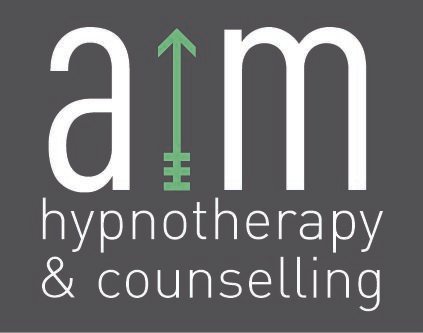What is Loneliness?
Loneliness is the difference between how much social connection we would like and the amount we think we have. The less connected we believe we are, the lonelier we feel.
It’s normal to feel lonely sometimes. We all experience loneliness from time to time, some people really enjoy lone stretches of time on their own. Loneliness is not the same as being alone.
Being on our own is a problem when it feels like it is outside our control, when it is endured for long periods of time or when we continue to feel lonely even when we are with people who care about us.
A survey conducted by the Vancouver Foundation found that 50% in Vancouverites reported having difficulty making friends, and 14% reported feeling lonely either ‘often’ or ‘almost always’ (https://www.vancouverfoundation.ca/sites/all/themes/connengage/files/VF-Connect-Engage-report.pdf).
What causes loneliness? Is is simply choosing to be alone?
There may be many external factors contributing to a lack of social connection or difficulty in building community. The survey of Vancouverites for example could have found a high number of people who feel lonely because it is a younger city with many new commers who may still be adjusting to a new environment. Some studies also point to cost of living as an important contributor to loneliness since it can be costly to go out and engage in social activities.
Some surveys worldwide have also found that internet use can lead to less face to face interactions, which can lead to higher levels of loneliness.
So if there are exrernal factors that affect us all, why are there differences in loneliness scores?
The reality is that we live in an increasingly digital age and that this can give us a false sense of social connection which can contribute to our sense of disconnection and loneliness.
When looking at the cause of chrnonic loneliness and difficulties in feelign connected, it may be more important to look at the internal factors which can be causing these feeling such as social anxiety, low mood followed, self-imposed isolation, or insecure/avoidant attachment styles.
An important contributor to loneliness is our individual thinking styles and our perceptions or the “filters” through which we view ourselves and the world around us.
We all have different ways we see the world and our place in it. These are our biases or ‘filters’ which affect the way we see things and our expectations in our day to day experiences. Our filters are developed to help us make sense of the world, but they can become skewed or stuck if they do not change and adapt to the changes in our lives and circumstances.
Disappointment in our early or past relationships can skew our blueprints of love and connection can continue to negatviely affect our abilities to connect. Left unchallenged, these biasis can stop us from feeling close to others and stand in the way of building meaningful and fulfilling friendships or relationships.
Our life experiences and past interactions can lead to internalized negative beliefs about how well we can connect to others and how much we can trust them to be there for us.
What are the long-term impacts of loneliness?
Enduring loneliness has been linked to a wide range or physical health conditions including coronary heart disease, depression, anxiety disorders and poor sleep (Cacioppo et al., 2002) (Mattews et al., 2017) . In fact, studies show that loneliness is a bigger predictor of poor health and shortened life span than smoking or obesity (WebMD, 2010).
Why do some people struggle to feel connected?
There can be many different factors that have contributed to your current experience of loneliness. Some of those reasons may be related to your current circumstances. A recent move to a new city or country, loss of contact with old friends due to live style changes or losing connection due to loss of a relationships. Although most of us experience bouts of loneliness at different stages of life, some of us experience the hardships of persistent loneliness or feelings of loneliness and disconnection even when we are socially connected.
Persistent and enduring difficulties with social connection can be due to anxieties or worries of being vulnerable, embarrassed or uneasy with close connections. People may have developed issues with trusting others or may have internalized worries that they are not loveable or incapable of connecting to others because of some difficulties in their past relationships or family bonds.
How can therapy help?
Therapy can help loneliness in many different ways. Depending on the client and their unique life experiences, therapy can help them develop a better understanding of the reasons they may be self-isolating and the negative impacts their tendencies are having on their lives.
Therapy can help make sense of the past events that have led to the coping strategies that are hindering social connection. Uncovering and discussing past experiences of hurt in a safe and encouraging environment can help give clients safe and positive experiences of connection. Positive interpersonal experiences help rewire the parts of the brain that have not felt safe enough to practice self-disclosure and honest communication. Clients minds and bodies begin to better decipher safe and unsafe social situations allowing them to practice different ways of showing up and connecting to others in their daily lives.
Hypnotherapy, Mindfulness and body awareness exercises can help you process past hurts and begin to visualize possibilities for positive social interactions and strengthen your ability to calm your body and nervous systems in social settings. Hypnotherapy can be used to increase self-efficacy and motivations to make behavioural changes that can lead to a greater sense of connection with others.
A focus on thought patterns in therapy also helps in identifying the negative thinking patterns that are keeping you stuck in loneliness. These types of interventions have shown to have long-term and positive outcomes for clients experiencing enduring loneliness (Käll et al., 2020).
If you are curious to learn more or have any additional questions please be in touch. You can also book your first appointment through the online booking system.
References
https://www.vancouverfoundation.ca/sites/all/themes/connengage/files/VF-Connect-Engage-report.pdf).
Cacioppo, J. T., Hawkley, L. C., Crawford, L. E., Ernst, J. M., Burleson, M. H., Kowalewski, R. B., ... & Berntson, G. G. (2002). Loneliness and health: Potential mechanisms. Psychosomatic medicine, 64(3), 407-417. DOI:10.1097/00006842-200205000-00005
Käll, A., Backlund, U., Shafran, R., & Andersson, G. (2020). Lonesome no more? : A two-year follow-up of internet-administered cognitive behavioral therapy for loneliness. Internet Interventions, 19. Published. https://doi.org/10.1016/j.invent.2019.100301
Matthews, T., Danese, A., Gregory, A., Caspi, A., Moffitt, T., & Arseneault, L. (2017). Sleeping with one eye open: Loneliness and sleep quality in young adults. Psychological Medicine, 47(12), 2177-2186. DOI: 10.1017/S0033291717000629
Pielage, S. B., Luteijn, F., & Arrindell, W. A. (2005). Adult attachment, intimacy and psychological distress in a clinical and community sample. Clinical Psychology & Psychotherapy: An International Journal of Theory & Practice, 12(6), 455-464.
DOI: https://doi.org/10.1002/cpp.472
https://www.webmd.com/balance/news/20180504/loneliness-rivals-obesity-smoking-as-health-risk

